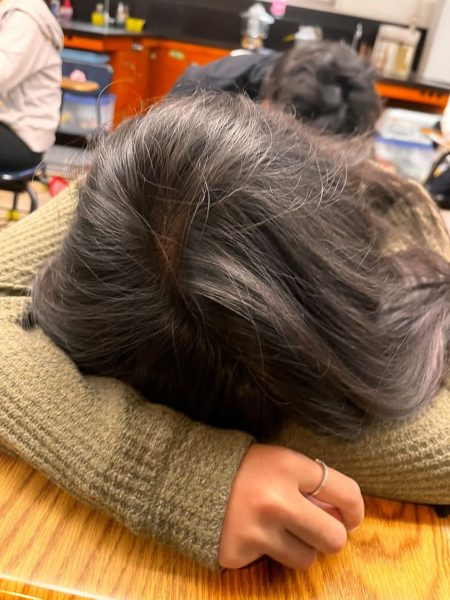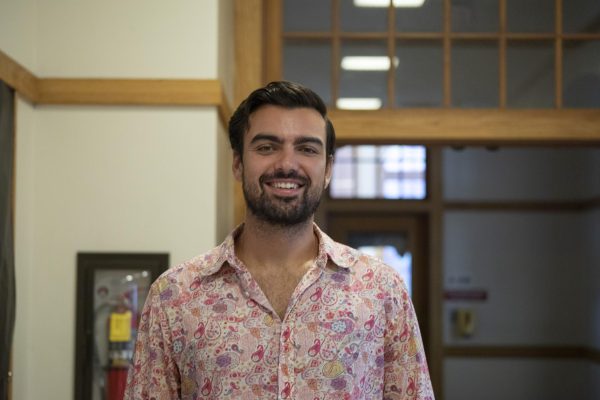Students learn about concentration and internment camps
February 26, 2012
Two travesties that occurred during World War II involved the forced detention of innocent people The Nazis ran concentration camps in Europe. In America, Japanese-Americans were sent to internment camps.
Through March 31, the Kapolei Public Library is showing a display called “The Hawaii Internment Experience.â On Saturday, March 10 at 10:30 a.m. the Japanese Cultural Center of Hawaii will present a 10-minute film about Honouliuli Camp and the history of Japanese internment in Hawaii . For more information, call 693-7050 . http://www.hawaiiinternment.org/history-of-internment
Students in sophomore English read excerpts in their textbook, “The Language of Literature,” from two memoirs about these forced detentions. They read portions of âNightâ by Elie Wiesel about his experiences in the concentration camps and portions of âFarewell to Manzanarâ by Jeanne Wakatsuki about her time in the Manzanar Relocation Camp.
Here are one essay comparing those experiences.
The experiences of Elie Wiesel and Jeanne Wakatsuki are similar and different in several ways. First of all, their experiences were similar because they both suffered from prejudice against their race. According to the text, Elie Wiesel suffered from prejudice of Jews by the Germans and Jeanne Wakatsuki suffered from prejudice of Japanese by the Americans in the camps. Next another way their experiences were similar were that inside the camps, they were treated very poorly. According to the text, Elie Wiesel was given very little food, had to work all day, and had poor living conditions. Jeanne Wakatsuki also had to work all day, had poor living conditions, had very little privacy and was given spoiled, disgusting food.
Lastly, their experiences were different because Elie Wiesel was scared while he was inside the concentration camp, but Jeanne Wakatsuki was not scared, but rather mad. On page 596 of the text, Elie witnessed the deaths of many Jews because they were killed by the Nazis daily. But Jeanne did not witness that many deaths because the Japanese were sent to the camps to work, not be killed. So in conclusion, I believe that the experiences of Elie and Jeanne were very similar but also very different.
Read other comparisons by Joey Tam http://myhsj.org/Schools/Newspaper/tabid/100/view/frontpage/schoolid/3708/articleid/505256/newspaperid/3865/Students_learn_about_concentration_and_internment_camps.aspx Hanae Matsumoto http://myhsj.org/Schools/Newspaper/tabid/100/view/frontpage/schoolid/3708/articleid/505254/newspaperid/3865/Students_learn_about_concentration_and_internment_camps.aspx Phuong Nguyen http://myhsj.org/Schools/Newspaper/tabid/100/view/frontpage/schoolid/3708/articleid/505253/newspaperid/3865/Students_learn_about_concentration_and_internment_camps.aspx












